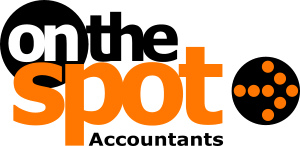Top Five Most Common Tax Queries - 2016/17
Today is the last day of the 2017 tax year and you may be interested to hear the more common tax queries our clients have asked during the tax year.
1. Dividend Tax - How much tax will I have to pay?
Unfortunately, most companies are affected by this. Broadly dividends you pay over £5k within the basic rate tax band have now suffered a 7.5% tax charge. If this is over £1k, which is likely, you'll also find yourself in the payments on account system meaning that you have to pay 50% of next year's tax bill before the end of the tax year in January. Plus a further 50% in July. The first year this applies is this tax year just ended and therefore your cashflow requirements will be even higher next January 2018, and July 2018.
2. Salary - What salary should I take from my limited company?
If you're a sole director, you can't claim the Employer Annual Allowance of £3k, so the most tax efficient monthly salary was set at the national insurance threshold of £671. For next tax year, this increases to £680. If there's more than one director who was paid at least £485pcm or you employed staff, even briefly during the tax year, you could claim the Employer Annual Allowance using part of the £3k. This means if you paid yourself the full tax free personal allowance of £11k or £916pcm, when all the taxes are taken into account, this saved £472 per couple of directors. This year the savings are very similar, despite the increased tax free personal allowance to £11,500 as the reduced rate of corporation tax to 19% reduces the saving from paying a higher salary. Before paying a second director, you should always review their other income such as property rental.
3. VAT - Should I deregister from the VAT Flat Rate scheme?
HMRC recently introduced the concept of a limited cost trader, meaning mostly consultants, who they deemed to be abusing the tax system by profiting from the Flat Rate scheme. As the scheme was introduced by the government and taxpayers were encouraged to use it, this was a strange statement to hear. The upshot is that consultants have moved to standard VAT accounting meaning they make neither a gain or a loss but HMRC may now need to spend more time reviewing their tax returns because they will be more complicated. Unfortunately, the new rules, as is often the case, has caught other people. For example, if you run a ballet school but sell a few ballet clothes to students, selling goods isn't your main business activity, so you can no longer operate the Flat Rate scheme.
4. Pensions - How much tax relief do I receive and should my company pay the contributions?
If you're a company director-shareholder taking a small salary (see above) and larger dividends (see above) you are limited when looking at personal pension contributions. This is because pensions can't be paid against dividends even though we now pay tax on dividends. Therefore, it's usually a good idea for your company to pay company pension contributions. They are an expense in your profit and loss account and therefore saved 20% corporation tax (or 19% during this new tax year).
For people who don't run their own business who are in their employer's pension scheme please triple check that you understand whether you're receiving full or partial tax relief in your payslips. We see many people only receivng 20% who aren't aware they need to make a further 20% claim in their tax return.
5. Sporting events or memberships - Can I claim tax relief?
Despite being a place where business is discussed with customers and suppliers, HMRC view this as not being tax deductible. The main reason to go to a sporting event with customers and suppliers is to entertain and entertaining is not tax deductible. On the other hand, if there's a conference with a business agenda for staff to attend away from their office, this is likely to be tax deductible. If the cost is less than £50 incl VAT per person, you may be able to use the new trivial benefits rules and treat staff to a sporting event, as many times as you like. So, it's not all bad.
